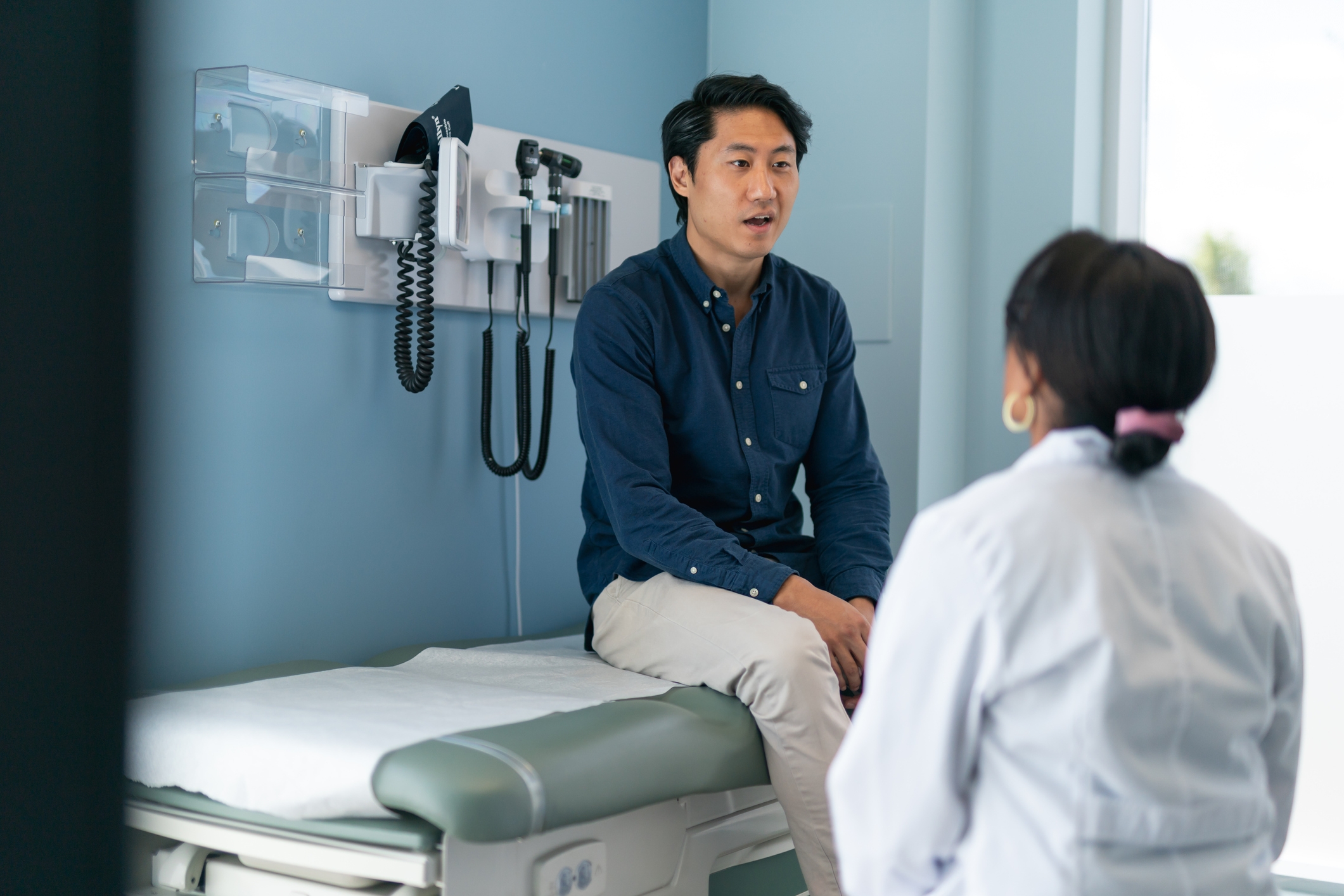
Seeing is knowing: What does herpes look like?
Herpes is a word that carries with it a lot of questions and concerns. We often hear about it in discussions about sexual health. But when it comes to what herpes actually looks like, the information can be less clear. So, what does herpes look like?
We're here to demystify the appearance of herpes. We'll help you recognize its various forms and understand when it's time to seek medical advice.
What does herpes look like when it starts?
Herpes, particularly the herpes simplex virus (HSV), can present itself differently depending on whether it's an initial outbreak or a recurrent episode.
To understand what herpes looks like when it starts, let's take a closer look at both scenarios.
Initial outbreak: the first impression.
- Blisters or sores. When herpes first appears, it typically begins with small, red bumps or blisters. These can be painful and filled with clear or cloudy fluid. They may form in clusters surrounded by red, irritated skin.
- Itching and burning. Before the blisters appear, you may experience itching, burning, or tingling in the affected area. This is often an early warning sign that a herpes outbreak is imminent.
- Ulcers. As the blisters burst, they may form ulcers, which are shallow sores. These ulcers can be uncomfortable and may take some time to heal.
- Flu-like symptoms. Some individuals experience flu-like symptoms during their initial outbreak, such as fever, swollen lymph nodes, and general malaise.
- Location. Herpes can appear on or around the genitals (genital herpes) or the mouth and lips (oral herpes). Genital herpes often occurs on the vulva, penis, buttocks or inside the vagina or anus. Oral herpes affects the lips, mouth and even the throat.
Recurrent outbreaks: familiar patterns.
- Milder symptoms. Recurrent herpes outbreaks tend to be milder than the initial ones. You may still experience tingling and burning, but the sores are often smaller and less painful.
- Timing. Recurrent outbreaks often follow a pattern. Some individuals experience them more frequently, while others may have long intervals between outbreaks.
- Triggers. Certain factors, such as stress, illness or exposure to sunlight, can trigger recurrent outbreaks.
- Location. The location of recurrent outbreaks is typically consistent. If your initial outbreak was oral, subsequent outbreaks will likely occur in the same area.
Understanding what herpes looks like during its initial outbreak can be crucial in seeking timely medical attention and guidance.
If you suspect you have herpes, especially during your first outbreak, consult a healthcare provider at CityMD for a proper diagnosis.
What is the main cause of herpes?
The herpes simplex virus (HSV), primarily HSV-1 and HSV-2, causes herpes.
- HSV-1. It is mainly responsible for oral herpes, often transmitted through kissing or sharing utensils. It can also cause genital herpes through oral-genital contact.
- HSV-2. This is the primary cause of genital herpes, transmitted through sexual contact.
Herpes spreads through direct contact with an active sore but can also transmit without visible symptoms. Practicing safe sex and taking precautions are essential to reduce the risk of transmission. Consult a medical provider at your local CityMD for testing and guidance if you have concerns or suspect exposure to this STD.
Can you tell if you have herpes without a test?
Detecting herpes without a medical test can be challenging because symptoms can vary, and some infected individuals may not experience noticeable signs at all.
However, certain clues might suggest a herpes infection.
Recognizable symptoms.
- Oral herpes (HSV-1). If you have recurrent cold sores or fever blisters around your mouth or lips, it's a potential sign of oral herpes.
- Genital herpes (HSV-2). The most common symptom is the appearance of genital sores, which can be painful and may resemble blisters or ulcers. Itching, burning or tingling in the genital area may also precede the sores.
Flu-like symptoms.
During an initial herpes outbreak, some people experience flu-like symptoms, including fever, swollen lymph nodes, muscle aches and general malaise.
Past sexual history.
If you've had unprotected sexual contact with someone who has herpes or engaged in behaviors that increase your risk of herpes transmission, it's essential to consider the possibility of infection.
Previous diagnosis.
If you've previously been diagnosed with herpes or had a partner who tested positive, you may already know about your infection.
While you can sometimes detect herpes without a test, a medical test is the most reliable way to confirm a herpes infection definitively.
Can you tell if you have herpes without a test?
Detecting herpes without a medical test can be challenging because symptoms can vary, and some infected individuals may not experience noticeable signs at all.
Herpes infections can usually be diagnosed based on your symptoms and the appearance of any lesions. However, a definitive diagnosis is made by swabbing the suspected lesions and sending them to the lab for a culture.
Blood testing for herpes checks for previous exposure to the herpes virus but does not indicate that there is an active disease.
Prioritizing your health with STD testing at CityMD.
Your sexual health is an integral part of your overall well-being, and taking proactive steps to safeguard it is crucial. CityMD offers discreet and professional STD testing services, including testing for herpes. By getting tested, you not only gain peace of mind but also contribute to preventing further transmission.
Don't hesitate; take control of your health. Contact CityMD today for confidential and compassionate testing, knowing that your well-being is our top priority. Your health matters, and we're here to support you every step of the way.

We’re ready to care for you.
Visit any CityMD urgent care location in your community today for an evaluation with one of our expert providers.